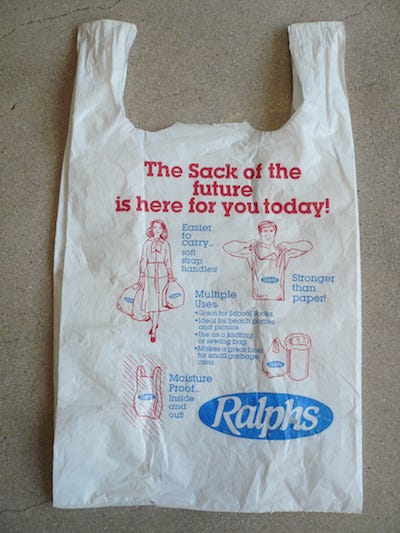No. 58: The plastic patriarchy
Blame it on the men 👀
Happy Barbie movie release week!! 💕 👠 G&S is a Barbie > Oppenheimer community if that wasn’t clear. ;)
The history of plastic: how we ended up here
1862 - 1900: It is heavily disputed who originally invented this overused substance. One idea is that it was accidentally discovered by Alexander Parkes in 1862. He called it “Parkesine” and marketed it as a substitute for ivory. Another possible inventor could be John Wesley Hyatt, who discovered it in 1969 as an alternative for materials like natural ivory, tortoiseshell, and coral. (So while plastic originally helped reduce the need for animal cruelty, obviously nowadays it has morphed into something much worse, harming many more organisms!!).
1901 – 1950: Marking the beginning of our modern plastics industry was “Bakelite,” the first entirely synthetic plastic in 1907, as well as other new plastic inventions (polyethylene, polystyrene, and nylon) that were heavily used during World War II.
1951 – 1975: This period marks a supposedly exciting time for the lighter and cheaper alternative, although, in a few short decades, information will come to light that disputes these marketing ploys. In 1965, the first polyethylene shopping bag is introduced by Swedish company Celloplast, quickly replacing cloth and paper.
1976 - 2020: By 1979, plastic bags begin to dominate the U.S. market, soon accepted by major grocery retailers Kroger and Safeway three years later. Bioplastics begin receiving attention in the ‘70s as consumers shift towards environmental ideals. In the late ‘80s, the plastics industry devotes millions of dollars to promoting recycling (shifting the blame off of them onto consumers) through ads, recycling projects, and PR, while fully knowing it could never properly work. In 1997, researcher Charles Moore discovers the Great Pacific Garbage Patch, today’s largest accumulation of plastic in our oceans. From the 2010s to today solidifying action for plastic pollution on the global agenda and the importance of searching for plastic alternatives.
2002: Bangladesh is the first country to approve a plastic bag ban
2018: The United Nations Environment Program (UNEP) notes that 127 of 192 countries have enacted varying national legislation to address the current plastic bag problem
2023: Umm??? Still waiting…
Sources: UNEP, Terracycle, Plastics Industry Association, NPR
Research note: I love to use companies’/organizations’ words against them, so a portion of these facts came from the Plastics Industry Association, which lovingly fibs, “Today plastics are renowned for their sustainability…” Gotta love blatant propaganda! (Screenshot included below.)
How to be a Plastic-Free Baddie: The Socially Anxious Edition (Sustainable Baddie)
Why Canada’s wildfires will affect air quality for weeks to come (Vox) - When it isn’t even safe to go outside, yet people still “disagree” with the facts of the climate crisis… Major 🚩
Dear #booktok, Don’t Follow the Footsteps of Fast Fashion Creators (Sustain the Mag)
99 Great Ways to Save (AARP) - Surprisingly, they mentioned many great sustainable tips!
For example, at participating grocery stores, you can purchase food that is going bad soon and save it from being wasted, through Flashfood. (Not available everywhere!)
Another great food waste-fighting app is Too Good To Go, which allows customers to purchase “leftovers” from restaurants that would’ve been thrown away at the end of the day, at a fraction of the price. (Not available everywhere!)
And, Starbucks offers a great free program at select stores, Grounds for Your Garden, where they save coffee grounds for customers to use in their compost. Ask your local store if it’s an option!
They also recommend hosting a plant swap, which is such a fun idea!
Good climate news
New York’s shark-infested waters are a good thing. (Vox) - Essentially, due to the return of the shark population, it signifies other fish are able to sustain life, and therefore the NY coast ecosystem is improving!
New Hope for Resurrecting Extinct Plants (YaleEnvironment360)
Wrap-up
Hope you enjoyed my saltiness this week!





Thanks for this succinct roundup! The whole recycling narrative — with all its greenwashing and putting the blame on consumers — is especially infuriating.